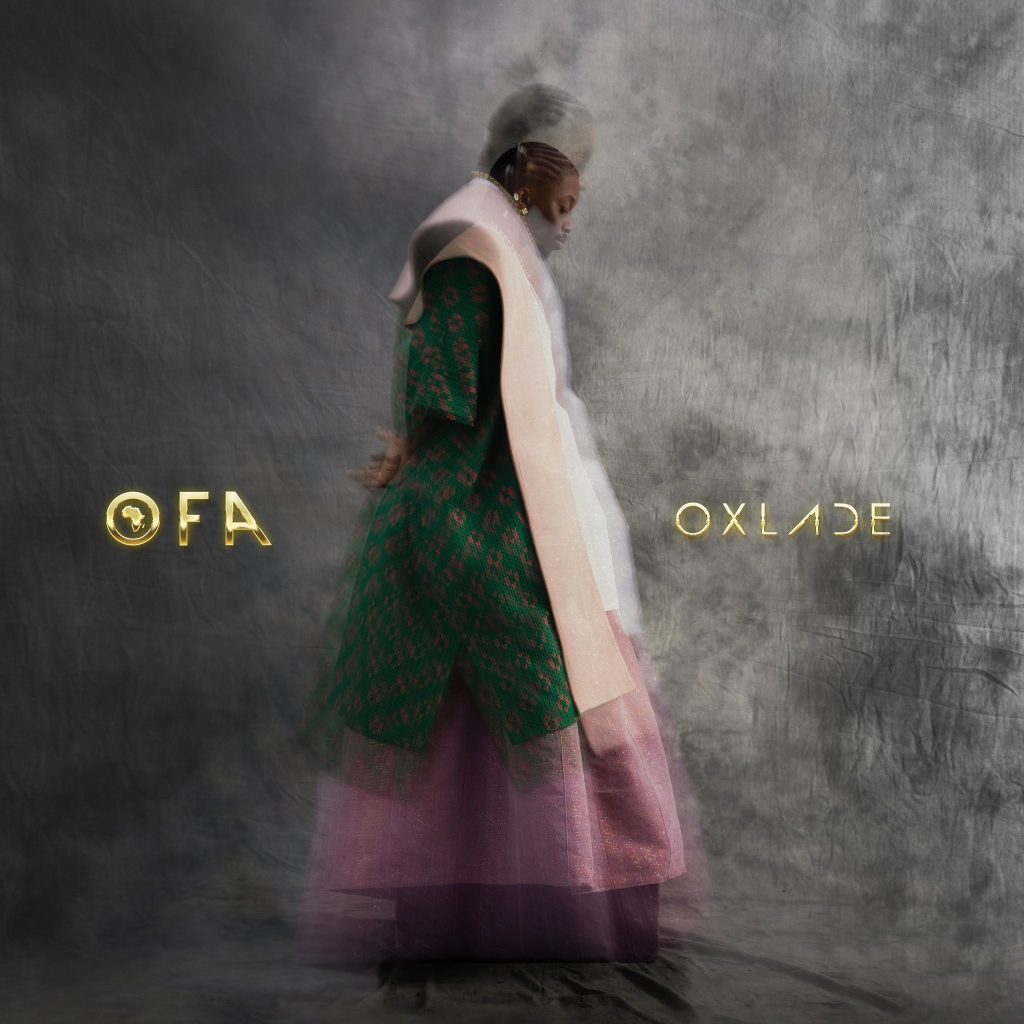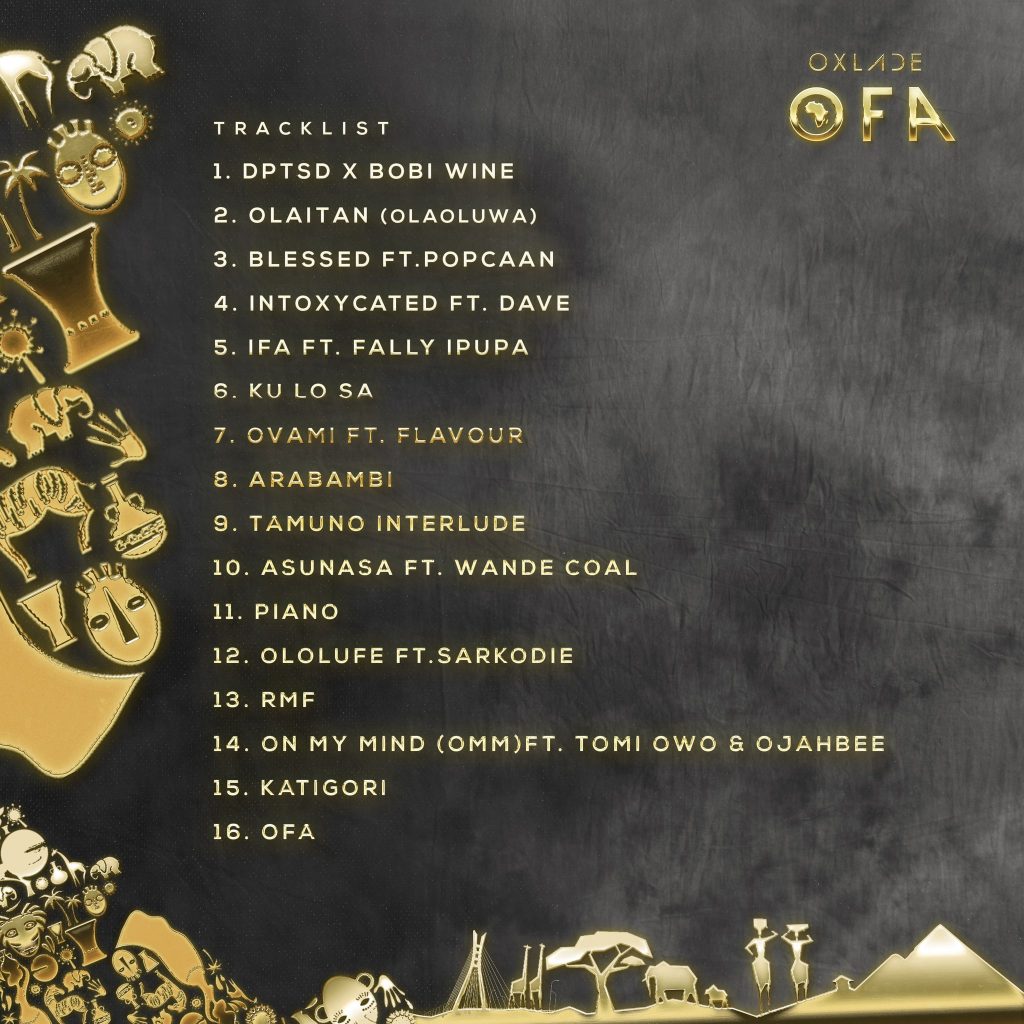In 2019, a new generation of popstars were ushered into the industry. They were more intentional with their aesthetics and also had poetic undertones to their music. Most importantly though, they packed enough talent to finally displace the OGs at the top, who had overstayed their welcome.

Rema, Fireboy DML, Joeboy, Oxlade were the most notable names that had gotten their breakthroughs or at least, achieved some semblance of popularity to get the tide turning in their favor at the turn of the new decade. It did take Oxlade a while for him to get going and achieve the same level of global reverence Rema and Fireboy already clinched, but Ku Lo Sa eventually happened and it became one of Afrobeats most crucial moments, this decade.
And like most of his peers, Oxlade belonged to the R&B fusion spectrum of pop and his vocals enabled the emotive nature of his music. His 2020 EP, Oxygene—which in this writer’s opinion is his best project yet—had him navigating various R&B tinged pop atmospheres, where his simplistic writing thrived and his vocals elevated the sonic experience. However, since then the artist has struggled to find sonic atmospheres he thrives in and the same problem bleeds into this album.
Unlike Fireboy and Joeboy, Oxlade isn’t a great writer and so when he veers into the deep end of R&B, where he needs to appeal to the emotions and craft a tale truly profound and compelling, he struggles. He works best on mid-tempo pop rhythms and mainstream R&B beats with pop elements, that place more emphasis on strong hooks and vocal runs. The fourth track off Oxygene, Weakness—is the perfect example of this. On the song, he isn’t keeping you hooked with a heartbreak or heartfelt story, and he’s only saying his lover makes him loose his head, multiple times in slightly different ways. However, it’s the catchy hook and vocal performance that makes the song great. Not the sentiment or depth.

And so, when you place him on beats that requires a dynamic delivery, as regards emotionally-inflected performances and lyrical depth, he usually stumbles. Indeed great artists don’t play it safe on albums and in fact need to go on adventures that would test the full extent of their artistry. However, there needs to be the right balance of soundscapes that’s ideal to their sonic profiles and the more experimental ones. On this album, Oxlade stumbles through it albeit some good songs in the mix.
OFA opens with “D PTSD Interlude“, a daunting flashback to 2020 in the heat of the #EndSars protests and the memory of Oxlade’s manager, Ojah Bee getting compromised by brute, unlawful police officers. It’s a gruesome event scarred in the memory of everyone involved in the protests, one way or another and so the audio suffices in jogging the memory and painting vivid flashbacks that makes the song function well in the intended PTSD capacity. But the problem here is that, the whole sentiment is misplaced.
If Oxlade had gone on to craft the sort of melancholic, personal music that had listeners journeying through the depths of his psyche and lows—then the grueling interlude would have been a great way to foreshadow that. Instead the album thematic direction is mostly conventional with its topics hardly venturing outside romantic love. And sure, the track following the interlude, Olaitan – Olaoluwa has him reflecting and treading themes of gratitude, still, it doesn’t resonate as much as a Fireboy DML’s iseoluwa with similar themes, because the latter song has significantly better writing that pulls at heart strings.
Blessed ft. Popcaan is a couple of BPMs too low. A slowed down bashment fusion beat definitely has more pockets that needs to be filled and Oxlade has neither the delivery variance nor lyrical ability to do so. He does his comfortable one-dimensional delivery and it comes off as him getting dragged by the beat. There is little Popcaan can do to salvage the song, especially when he’s given a very small to play. Although towards the ending, Oxlade does get a little creative with his flows but it’s too little, too late.
Intoxycated ft. Dave is indeed a good song with the sort of mid-tempo pace and production that is ideal for Oxlade, but it’s too similar to the archetype of songs that highlight Wizkid’s Made In Lagos, without any interesting spin on it. IFA ft. Fally Ipupa is another good song, that’s ideally tailored to Oxlade and he glides on the palmwine influenced pathos of the beat. Fally Ipupa also fits like a glove into the song with the texture of his vocals and brings some much needed dynamism to the song.
KU LO SA is the smash-hit cultural moment that reminds you of Oxlade’s vocal prowess, when he wields it well. For someone with a phenomenal vocal range, Oxlade utilizes it in a very monotonous way most times where he just sings with his head voice and riffs inappropriately, simply because he can. On KU LO SA, he finds that perfect balance.

Ovami is a soulful, emotive R&B record with a sombre atmosphere that excels once again, because Oxlade wields his voice well and layers his vocal delivery. There are no impressive lines that’s jaw dropping or swoon worthy, but the melodies are enough to pierce your soul and enter your spirit. The plucked guitar strings and trumpet horns remain a unifying cohesive element on the LP. Arabambi is more of the same, except the drum rolls of the beat makes it more pop-leaning. The chorus is also strong, unfortunately the same can’t be said for the verses. Especially the second one.
Tamuno Interlude is yet another misplaced moment that isn’t justified thematically on the album. The sonic soundscape of the album is Afrobeats indeed, but nothing grounded or visceral enough to justify acapella chant of native African women. If I heard this sort of interlude on a Wizard Chan album or any other alternative artist, it would make sense. It could also make sense in pop, but definitely not pop that’s not as intentional with its cultural elements.
Asunasa (Hold Your Waist) ft. Wande Coal is perhaps the closest thing this LP has to a hit single. Not because it’s the best song, but it has a very simplistic, catchy structure with notable high moments punctuated with kinetic percussion and vocal runs. Matter of fact, Oxlade can learn from his mentor, Wande Coal in the way he layers and utilizes his voice without necessarily riffing. P.priime continues his amazing run with the production of Piano, that takes Oxlade to another gear with the rebellious, gyrating frequencies on the song.
Ololufe ft. Sarkodie is another strong highlight and a rare moment, Oxlade does manage to be dynamic enough on the beat by varying his cadences from time to time. As expected, Sarkodie steals the show with his dexterous flows and it wouldn’t matter if you don’t understand the full scope of his lyrics, due to the charisma he always embodies. RMF is a filler track that offers nothing refreshing either sonically or thematically. Although he deviates into braggadocio lane, from the love-centric preceding tracks but it doesn’t stick as the production and delivery fail to pack any meaningful punch.
Tomi Owó pristine vocals breathes new life into the album on On My Mind – OMM and it’s her heartfelt delivery and lines that does the heavy lifting on the track. Oxlade isn’t exactly outshined either as he glides comfortably over the beat, muttering a slew of catchy words that don’t match the clear, intentional picture of love that Tomi depicts. It’s a good song, nonetheless. Katigori is a solemn reflection on the past and the miracle of time and chance, working to make Oxlade’s stars align in his journey of becoming a star. The layering of the crowd vocals and its back and forth format with Oxlade, makes for a very rewarding listening experience.
The sentiment is so wholesome and genuine, that it makes sense to end the album on this high note but Oxlade doesn’t and we get the eponymously titled track that captures another problem of this album. Asides the problem of talent optimization in the nature of which the beats are selected, there is also a perception problem. This album wants to project a larger-than-life image with its title of it being deeply rooted in Africa (at least more than the average Afropop album) and the inclusion of 2 interludes that are supposed to key into some sentiment of deep struggles, and also double down on cultural African aesthetics.
However, both interludes are either misplaced or unjustified because the music doesn’t cater to such intricate themes. This is not Burna’s Twice As Tall where the dense themes of socio political commentary, justified the rather introspective and culturally viable album opener Level Up. On this album, it just comes off as pretentious and contrived because the music here is nothing close to being nuanced or introspective. It’s very clear that this album is a conceptual one from its aesthetics and title, but the execution is very lacking.
What it does well though is deliver good pop songs, that are unapologetically pop songs. Oxlade isn’t wrong for trying to challenge himself, but sticking to what works for him would have probably been a better decision in hindsight. Nonetheless, whilst OFA has some worthwhile moments, this writer doesn’t believe it justifies its overall underwhelming quality.
Final Verdict:
Sonic Cohesion & Unharried Transitions: 1.5/2
Expansive Production: 1.4/2
Songwriting: 0.8/2
Delivery: 1.0/2
Optimal Track Sequencing: 1.3/2
Total: 6.0/10






